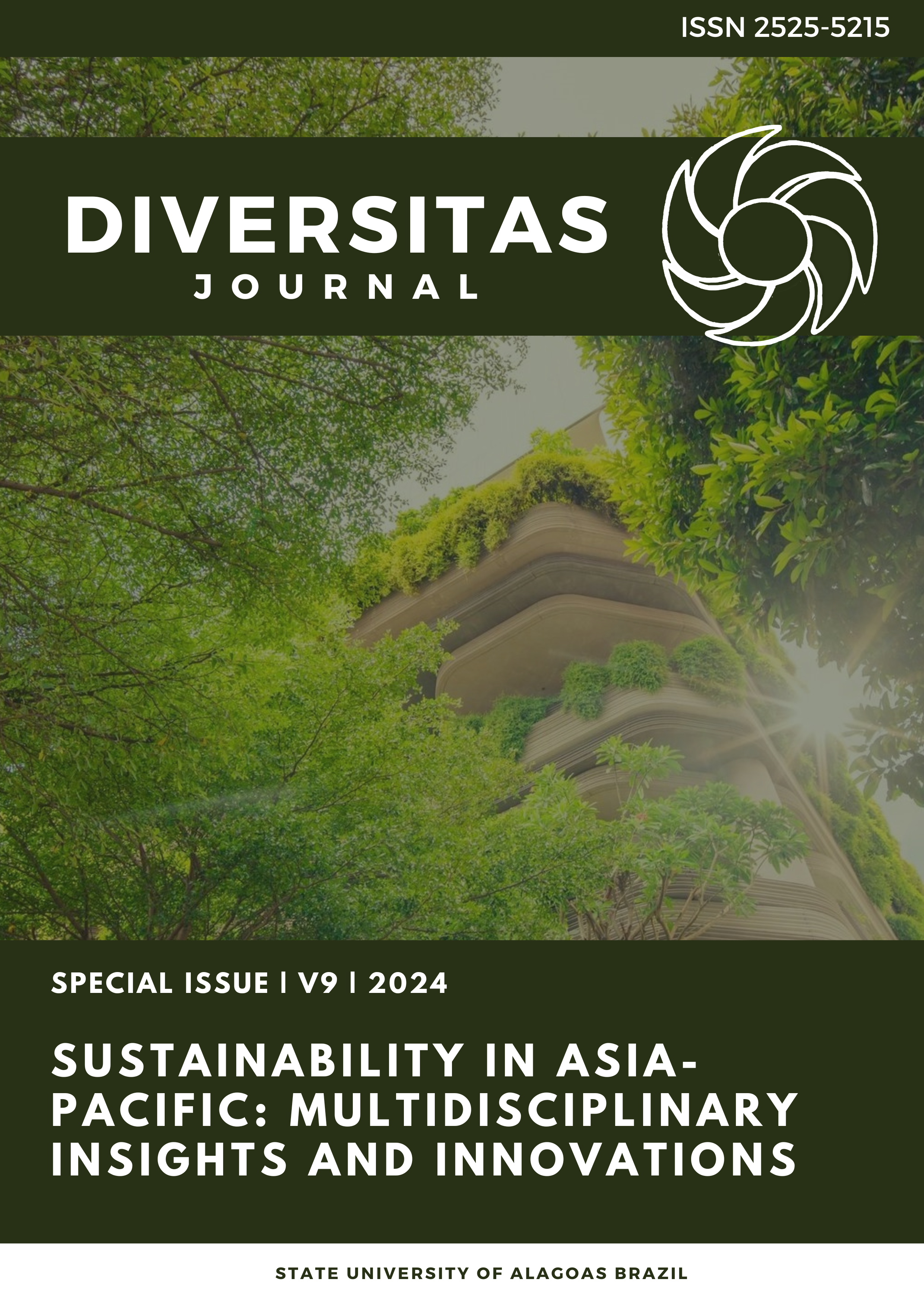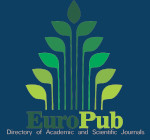The Integration of Sustainable Development Goals in the Secondary Science Curriculum of Cordillera Administrative Region
DOI:
https://doi.org/10.48017/dj.v9iSpecial1.2835Keywords:
education, mixed method, knowledge, attitude, PhilippinesAbstract
Schools play a crucial role in education for sustainable development. The aims of this study are to determine the extent of the incorporation of the Sustainable Development Goals (SDGs) in the secondary science curriculum and the extent of knowledge and attitude of science teachers regarding SDGs. The research design was concurrent triangulation mixed method. Purposive sampling was used in the selection of the science curriculum while convenience sampling was used in determining the participants for the survey and focus group discussion. The locale of the study is at Cordillera Administrative Region, Philippines. Findings show that the clusters of the SDGs related competencies of the Junior High School science curriculum are 51.61% knowledge, 21.29% values, and 21.19% skills. The dimensions reveal 14 learning competencies for social, 25 environmental, and 23 economic. This means that students are taught the interconnection of social, ecological and economic issues as evident in the curriculum. Furthermore, the extent of knowledge of science teachers regarding SDGs is high (M = 3.10, SD = 0.15) while the attitude is very positive (M = 3.46, SD = 0.09). Pearson correlation indicates weak positive correlation between the two variables, r=.37 while regression test showed significant correlation between knowledge and attitude, r=.37, p=0.03. Therefore, due to the inclusive nature of the SDGs, they are a great tool for expanding the science curriculum by giving real-world scenarios and life skills. SDGs are also helpful teaching resources that offer depth and perspective to scientific lessons.
Metrics
References
Aleixo, A. M., Azeiteiro, U. M., & Leal, S. (2018). The implementation of sustainability practices in Portuguese higher education institutions. International Journal of Sustainability in Higher Education, 19(1), 146–178. https://doi.org/10.1108/IJSHE-02
Anyolo, E. O., Kärkkäinen, S., & Keinonen, T. (2018). Implementing education for sustainable development in Namibia: School teachers’ perceptions and teaching practices. Journal of Teacher Education for Sustainability, 20(1), 64–81. https://doi.org/10.2478/jtes-2018-0004
Azeiteiro, U. M., Bacelar-Nicolau, P., Caetano, F. J. P., & Caeiro, S. (2015). Education for sustainable development through e-learning in higher education: Experiences from Portugal. Journal of Cleaner Production, 106, 308–319. https://doi.org/10.1016/j.jclepro.2014.11.056
Borges, F. (2019). Knowledge, attitudes and behaviours concerning sustainable development: A study among prospective elementary teachers. ERIC, 9(2), 22-32. https://eric.ed.gov/?id=EJ1206759
Cebrián, G., Grace, M., & Humphris, D. (2015). Academic staff engagement in education for sustainable development. Journal of Cleaner Production, 106, 79–86. https://doi.org/10.1016/j.jclepro.2014.12.010
Garcia-Gonzalez, E., Jiménez-Fontana, R., & Azcárate, P. (2020). Education for sustainability and the sustainable development goals: Pre-service teachers’ perceptions and knowledge. Sustainability, 12(8), 7741. https://doi.org/10.3390/su12187741
Garcia, J., da Silva, S.A., Carvalho, A.S., & de Andrade Guerra, J.B.S.O. (2017). Education for sustainable development and Its role in the promotion of the sustainable development goals. Curricula for Sustainability in Higher Education. https://doi.org/10.1007/978-3-319-56505-7_1
Ivlev, V. & Ivleva, M. (2018). Philosophical foundations of the concept of green economy. ASSEHR, 283. https://doi.org/10.2991/cesses-18.2018.192
Jonge, E. (2017). Spinoza and deep ecology: Challenging traditional approaches to environmentalism. Routledge
Kanapathy, S., Lee, K.E., Sivapalan, S., Mokhtar, M., Syed Zakaria, S.Z., & Mohd Zahidi, A. (2019). Sustainable development concept in the chemistry curriculum: An exploration of foundation students’ perspective. International Journal of Sustainability in Higher Education, 20(1), pp. 2-22. https://doi.org/10.1108/IJSHE-04-2018-0069
Labog, R. A. (2017). Teachers’ integration of environmental awareness and sustainable development practices. Asia Pacific Journal of Multidisciplinary Research, 5(3), 102–110. www.apjmr.com
Leal Filho, W., Shiel, C., Paço, A., Mifsud, M., Ávila, L. V., Brandli, L. L., Molthan-Hill, P., Pace, P., Azeiteiro, U. M., Vargas, V. R., & Caeiro, S. (2019). Sustainable Development Goals and sustainability teaching at universities: Falling behind or getting ahead of the pack? Journal of Cleaner Production, 232, 285–294. https://doi.org/10.1016/j.jclepro.2019.05.309
Leicht, A., Heiss, J., Byun, W. J., & UNESCO. (n.d.). Issues and trends in education for sustainable development. .UNESCO Publishing.
Mandikonza, C. (2019). Integrating indigenous knowledge practices as context and concepts for the learning of curriculum science: A methodological exploration. Southern African Journal of Environmental Education, 35(1). https://doi.org/10.4314/sajee.v35i1.13
Marcos-Merino, J.M., Corbacho-Cuello, I.,& Hernández-Barco, M. (2020). Analysis of sustainability knowingness, attitudes and behavior of a Spanish Pre-service teachers sample. Sustainability, 12(8), 7445. https://doi.org/10.3390/su12187445
Martinez-Borreguero, G., Maestre-Jiménez, J., Mateos-Núñez, M., & Naranjo-Correa, F. L. (2020). An integrated model approach of education for sustainable development: Exploring the concepts of water, energy and waste in primary education. Sustainability (Switzerland), 12(7). https://doi.org/10.3390/su12072947
Mazza, P. (2021). Concepts of Sustainable Development; a Literature review and a systematic framework for connecting the role of education with the SDGs. International Journal of Humanities Social Sciences and Education,8(8),106-112. https://doi.org/10.20431/2349-0381.0808009
Olsson, D., Gericke, N., & Rundgren, S. (2016). The effect of implementation of education for sustainable development in Swedish compulsory schools – Assessing pupils’ sustainability consciousness. Environmental Education Research, 22(2), 176-202. https:// doi.org/10.1080/13504622.2015.1005057
Osman, A., Ladhani, S., Findlater, E., & McKay, V. (2017). Curriculum framework for the sustainable development goals, First Edition. Commonwealth Secretariat.
Omisore, A. G., Babarinde, G. M., Bakare, D. P., & Asekun-Olarinmoye, E. O. (2017). Awareness and knowledge of the sustainable development goals in a university community in Southwestern Nigeria. Ethiopian Journal of Health Sciences, 27(6), 669–676. https://doi.org/10.4314/ejhs.v27i6.12
Pan, X. C. (2019). Research on the philosophical basis and practical significance of sustainable development. IOP Conference Series: Earth and Environmental Science, 237(5). https://doi.org/10.1088/1755-1315/237/5/052021
Pardede, P. (2019). Mixed methods research designs in EFL. https://www.researchgate.net/profile/Parlindungan-Pardede/publication/335110970_Mixed_Methods_Research_Designs_in_EFL/ links/5dc5df1792851c81803b104b/Mixed-MethodsResearch-Designs-in-EFL.pdf
Philippine Statistics Authority (PSA). (2018). Nine Percent of Filipinos aged 6 to 24 years are out of school (Results from the 2017 annual poverty indicators survey). https://psa.gov.ph/content/nine-percent-filipinos-aged-6-24-years-are-out-school-results-2017-annual-poverty-indicators
PSA. (2020a). Regional Compendium of Environment Statistics Component 4:Extreme Events and Disasters. http://rssocar.psa.gov.ph/environment-statistics/Regional%20Compendium%20of%20Environment%20Statistics%20
Component%204%3A%20Extreme%20Events%20and%20Disasters
Queiruga-Dios, M. Á., López-Iñesta, E., Diez-Ojeda, M., Sáiz-Manzanares, M. C., & Dorrío, J. B. V. (2020). Citizen science for scientific literacy and the attainment of sustainable development goals in formal education. Sustainability (Switzerland), 12(10). https://doi.org/10.3390/su12104283
Rahayu, K., Sanjaya, Y., & Solihat, R. (2021). Integration of SDGs in environmental education subjects of adiwiyate vocational high school. Journal of Physics: Conference Series, 1806. https://doi:10.1088/1742-6596/1806/1/012167
Rieckmann, M. (2017). Education for sustainable development goals: Learning objectives. UNESCO.
Ruiz-Garzon, Gomez, M, & Vidal, L. (2021). Perceptions of teachers in training on water issues and their relationship to the SDGs. Sustainability, 13(9), 5043. https://doi.org/10.3390/su13095043
Sammalisto, K., Sundström, A., & Holm, T. (2015). Implementation of sustainability in universities as perceived by faculty and staff - A model from a Swedish university. Journal of Cleaner Production, 106, 45–54. https://doi.org/10.1016/j.jclepro.2014.10.015
Sunthonkanokpong, W., & Murphy, E. (2019). Sustainability awareness, attitudes and actions: A survey of pre-service teachers. Issues in Educational Research, 29(2), 562-582
Tatlilioglu, E. (2019). Analysis of science curriculum and textbooks in terms of sustainable development goals: A case study. https://etd.lib.metu.edu.tr/upload/12624370/index.pdf
Uitto, A., & Saloranta, S. (2017). Subject teachers as educators for sustainability: A survey study. Education Sciences, 7(1). https://doi.org/10.3390/educsci7010008
UNICEF. (2017). Two billion people lack safe drinking water, more than twice lack safe sanitation. https://www.unicef.org/philippines/press-releases/two-billion-people-lack-safe-drinking-water-more-twice-lack-safe-sanitation#:~:text=Around%206%20million%20Filipinos%20also,from%2022%25%20to%2086%25
United Nations. (2015). The millennium development goals report, 2015. New York: United Nations.
UNESCO. (2016). Global education monitoring report-Education for people and planet: Creating sustainable futures for all. UNESCO.
Valderrama-Hernandez, R. (2019). Methodology to Analyze the Effectiveness of ESD in a higher degree in education. A case study. Sustainability, 12, 222. https://doi:10.3390/su12010222
Verhulst, E., & Lambrechts, W. (2015). Fostering the incorporation of sustainable development in higher education. Lessons learned from a change management perspective. Journal of Cleaner Production, 106, 189–204. https://doi.org/10.1016/j.jclepro.2014.09.049
Widiyawati, Y. (2020). Global warming & climate change: Integration of socio-scientific issues to enhance scientific literacy. Journal of Physics: Conference Series, 1511(1). https://doi.org/10.1088/1742-6596/1511/1/012071
Winarno, N., Rusdiana, D., Riandi, R., Susilowati, E., & Afifah, R. M. A. (2020). Implementation of integrated science curriculum: A critical review of the literature. Journal for the Education of Gifted Young Scientists, 8(2), 795–817. https://doi.org/10.17478/jegys.675722
Downloads
Published
How to Cite
Issue
Section
License
Copyright (c) 2024 Thea Suaco

This work is licensed under a Creative Commons Attribution 4.0 International License.
The Diversitas Journal expresses that the articles are the sole responsibility of the Authors, who are familiar with Brazilian and international legislation.
Articles are peer-reviewed and care should be taken to warn of the possible incidence of plagiarism. However, plagiarism is an indisputable action by the authors.
The violation of copyright is a crime, provided for in article 184 of the Brazilian Penal Code: “Art. 184 Violating copyright and related rights: Penalty - detention, from 3 (three) months to 1 (one) year, or fine. § 1 If the violation consists of total or partial reproduction, for the purpose of direct or indirect profit, by any means or process, of intellectual work, interpretation, performance or phonogram, without the express authorization of the author, the performer, the producer , as the case may be, or whoever represents them: Penalty - imprisonment, from 2 (two) to 4 (four) years, and a fine. ”















.png)




